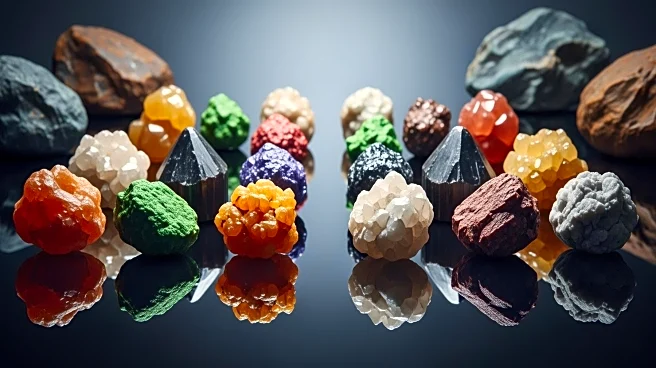What's Happening?
Malaysia has decided to uphold its ban on the export of raw rare earths, despite a recent critical minerals agreement with the United States. Trade Minister Tengku Zafrul Aziz announced this decision in parliament,
emphasizing the country's intent to protect its domestic resources and encourage foreign investment and technology sharing for processing these materials. Malaysia, which holds approximately 16.1 million metric tons of rare earth deposits, aims to add value domestically rather than exporting unprocessed materials. This move comes as Malaysia engages in talks with China to establish a rare earths processing facility, highlighting its strategic approach to resource management.
Why It's Important?
The decision to maintain the export ban on raw rare earths is significant for several reasons. It underscores Malaysia's strategic shift towards enhancing its domestic processing capabilities, which could lead to increased foreign investment and technological advancements in the country. For the U.S., this development may impact its efforts to diversify critical mineral supply chains, especially amid competition with China. The U.S. had hoped to secure a more reliable supply of these essential materials, which are crucial for high-tech manufacturing sectors, including electric vehicles and semiconductors. Malaysia's stance could influence global rare earth markets and supply chain dynamics.









